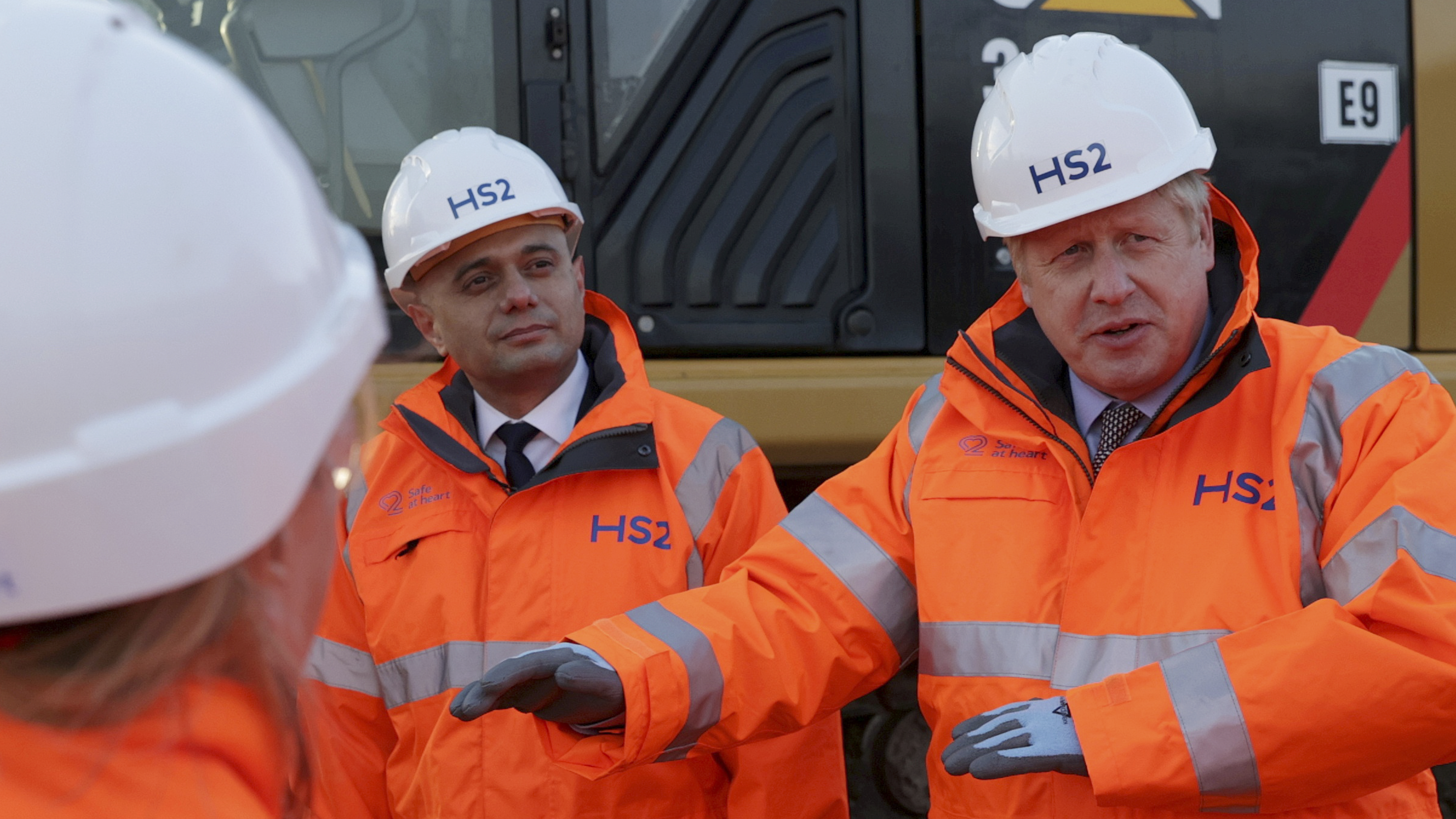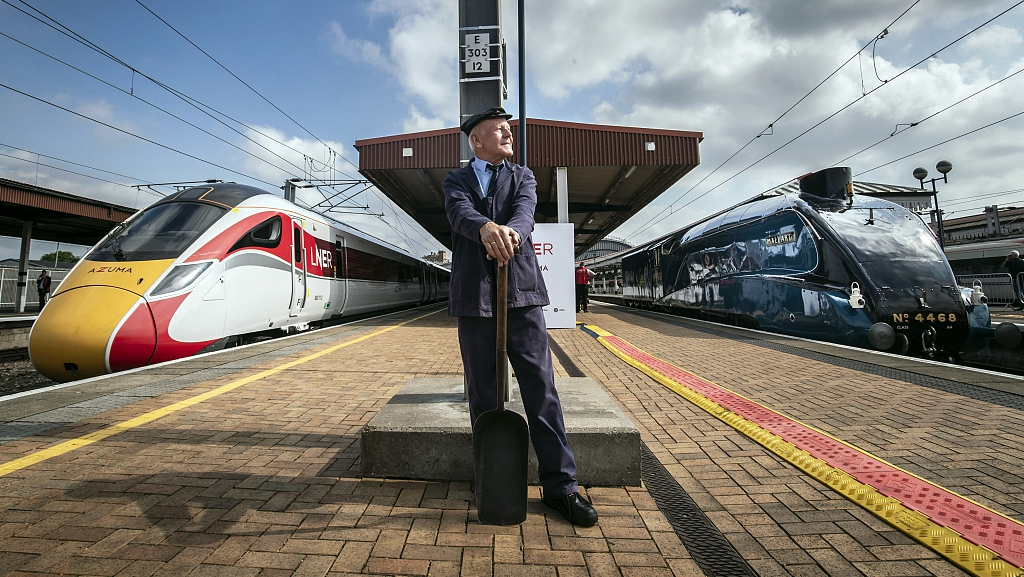
British Prime Minister Boris Johnson gives the go-ahead to the construction of the HS2. /AFP Photo
British Prime Minister Boris Johnson gives the go-ahead to the construction of the HS2. /AFP Photo
Editor's note: Freddie Reidy is a freelance writer based in London. He studied history and history of art at the University of Kent, Canterbury, specializing in Russian history and international politics. The article reflects the author's opinions, and not necessarily the views of CGTN.
Last week's announcement that the United Kingdom had been holding talks with the Chinese Railway Construction Consortium (CCRC) raised eyebrows abroad and in the press. In fact, talks had been held as far back as 2013 between former Prime Minister David Cameron and his Chinese counterpart Li Keqiang. While recent talks were said to be a discussion without "concrete commitments," the announcement was hot on the heels of Boris Johnson's announcement that Huawei would be permitted to bid for the UK's "non-core" 5G infrastructures.
Indeed, U.S. President Donald Trump on Monday, directed U.S. ambassador to Germany Richard Grenell to reaffirm the U.S. position that "any nation who chooses to use an untrustworthy 5G vendor will jeopardize our ability to share intelligence data at the highest level." Like the UK, Germany has not ruled out a partnership with Huawei but has come under similar pressure from America. Germany's reaction to this directive will likely give an unlikely glimpse into the potential challenges the UK faces in a post-Brexit world.
If handled skillfully, the UK can strive to operate between the competing ambitions of the U.S., China and the European Union. The United Kingdom, while not trading on a comparable level to the U.S., enjoys warmer relations with Beijing than Washington. Repeated clashes between French President Emmanuel Macron, German Chancellor Angela Merkel and U.S. President Donald Trump have also made the UK a useful ally in international issues such as Iran. So, there is room for maneuver.
The issue of Huawei will be a key test as to whether nations are able to stand up to America. While unlikely, withdrawing from schemes such as Five Eyes and wider NATO intelligence sharing agreements is possible. If Germany bows to U.S. demands, it seriously dents the UK's ability to withstand the same pressure. This would hamper a "third way" approach to future contracts and negotiations on a variety of issues by placing London at odds with Washington and Brussels. It is a position that would also diminish Chinese support.
For Boris Johnson, the contract for the construction of High Speed 2 (HS2) presents another such challenge. Does the UK stay clear of antagonizing the U.S., which, with a trade deal in the offing is set to be an even more important ally? Or does the prime minister look to Beijing and seek to further develop other trade arrangements free from the U.S. dependence?
London will be keen to position itself in such a way that the EU, the U.S. and Chinese rivals can battle it out among themselves for UK investment. However, this is a fine line as ultimately the UK will need to keep all parties content, so, in the coming years we can expect a distribution of government investment. This juggling act will be sure to test many old and newer alliances as the UK simultaneously tries to secure trade deals with all parties.

Steam traction inspector Jim Smith is pictured with a new Azuma train alongside the locomotive Mallard, holder of the world speed record for steam locomotives, at York Station in the UK. / VCG photo
Steam traction inspector Jim Smith is pictured with a new Azuma train alongside the locomotive Mallard, holder of the world speed record for steam locomotives, at York Station in the UK. / VCG photo
On a domestic level too, the UK government will want to ensure that associated industries involved in the construction of HS2 go to British workers. There is a strong feeling in the United Kingdom which was born out in the recent election, that UK heavy industry is in irreversible decline. The purchase of British Steel is another example of this. Awarding a contract to CCRC poses many political challenges.
In another test of ambition and direction, Johnson's government will need to decide whether they can justify a higher cost and longer lead time as the price for excluding CCRC from the process. The rail industry is also in a period of consolidation, arch rivals Alstom recently merged with Siemens' railway division and Canada's Bombardier are looking to offload their railway division, so is it wise to invest so heavily in domestic railway industries at the price of "getting it done"?
In Boris Johnson, Beijing can find a willing partner more akin to the Anglo-Sino glory days of former Prime Minister David Cameron and then Chancellor George Osborne. This warming after the hawkish days of Theresa May offers exciting opportunities but the United Kingdom is at a crossroads where, decisions such as these, are likely to set the tone for diplomatic discourse for decades. In typical British fashion, London will look to please all and save face as much face as possible. Though the question is: will the parties play fairly or slam the door in the face of competition?
(If you want to contribute and have specific expertise, please contact us at opinions@cgtn.com.)